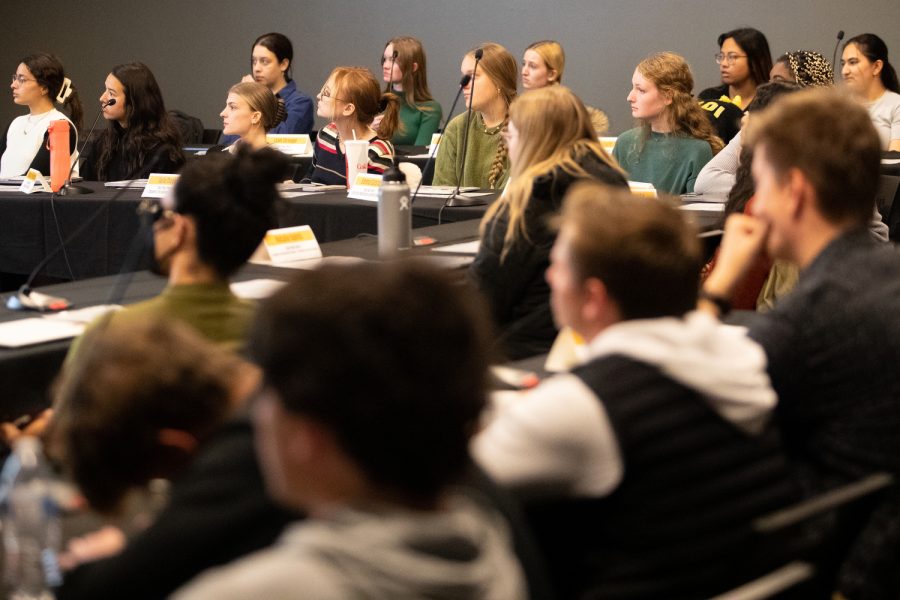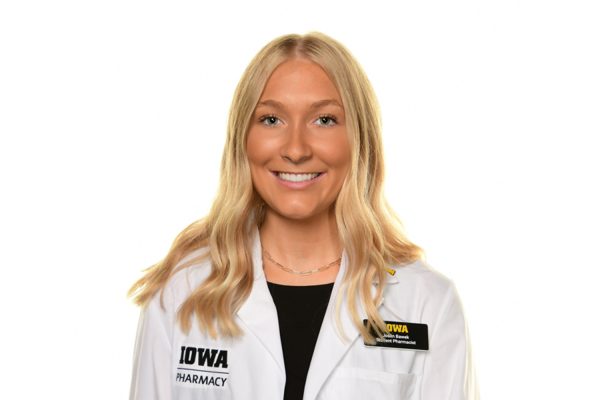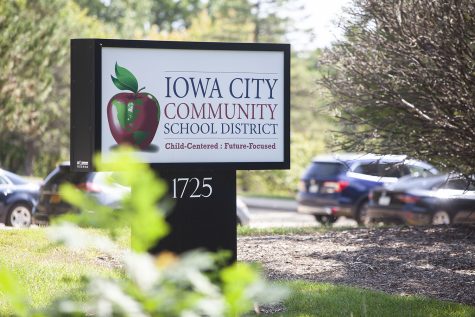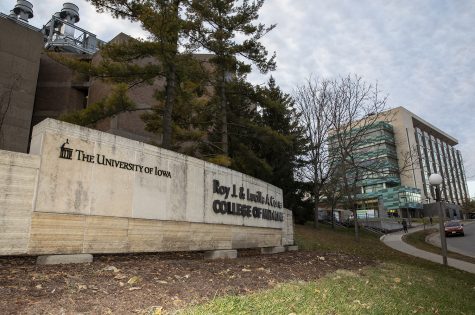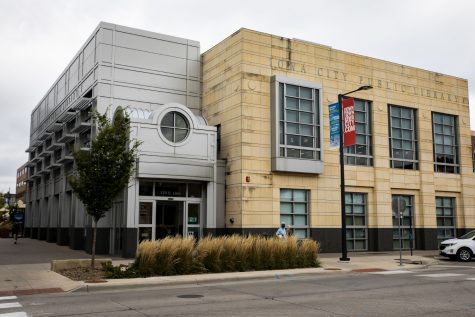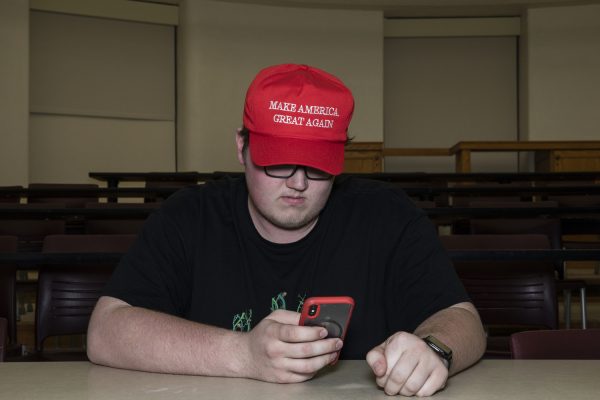Guest Opinion | Creating a CommUnity on Campus
Undergraduate Student Government President, Patrick Johnson, on how USG advocacy works to support mental health and wellbeing.
Senators listen to speakers at a University Student Government meeting in the Black Box Theater in the Iowa Memorial Union on Monday, Oct. 17, 2022.
February 22, 2023
When I first joined the University of Iowa Undergraduate Student Government in the spring 2020, it was for the simple goal of making a difference on campus. Four years and a national pandemic later, that goal has remained the same, whether that is work to support the Eastern Iowa Airport Shuttle, to partnering with the Department of Public Service to create a student advisory board.
Over the last four years, my roles in student government have shifted. I began as an at-large Senator before my election as the Finance Committee Chair in the following year. In 2021, I was appointed as the USG Director of Finance by former USG President Regan Smock and was then elected as the USG President for the current academic year.
Through each of these roles, I have seen the impact that organizations like USG can have on a campus and its students, and it has been an invaluable experience to connect with communities across the university.
Mental health and wellbeing have been central to my vision as the student body president. In seemingly every conversation with Iowa administration, the Iowa Legislature, and the state Board of Regents, the importance of support for students’ mental health has taken center stage.
While there have been challenges along the way, USG has seen pivotal accomplishments to support student mental well-being, such as the regents adding an additional $1 million dollars to support student mental health across Iowa’s Regent institutions.
When I initially interviewed for a Senator position, I distinctly remember the last question of the interview: “if you could wave a magic wand and make one instant change to the UI, what would that be and why?”
While I was new to Iowa, I drew upon my experiences in high school and in the past for my answer. I wanted to see a service to students where anyone, regardless of your situation and background, could talk to a counselor on the phone or over text, in the same way you would for emergency services.
Last year, that dream became a reality. The CommUnity Crisis Line was established on Oct. 7 2021 as 24/7 access to mental healthcare. It meets students where they are and when they need it. As Director of Finance, my committee directed $25,000 in funding towards this service’s startup costs. This year, the Finance Committee did the same.
While it is easy to think about this success as nothing more than dollars and cents, words cannot express the impact of projects exactly like this. USG funds are intended to benefit the student body at large, whether that is through increasing culture, experience, or resources at Iowa. Before a student can access any of these categories, however, they have to wake up in the morning knowing that they are part of a community that values them, supports them, and cares for them.
The potential for the CommUnity Crisis Line to provide this support is unmatched, and the service has seen positive results in its first year.
The potential for support and care from resources such as the Community Crisis Line is what makes USG so important to me and the University community. I take heart and pride in being a member of an organization that works to make tangible change for Iowa students, whether that is in the classroom or
outside of it. This funding is yet another example of what makes USG so important to the Iowa campus, and why it will not fade away over time. For that, I am proud.
Columns reflect the opinions of the authors and are not necessarily those of the Editorial Board, The Daily Iowan, or other organizations in which the author may be involved.



